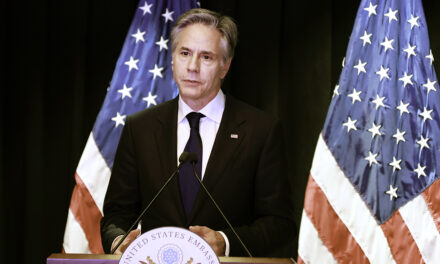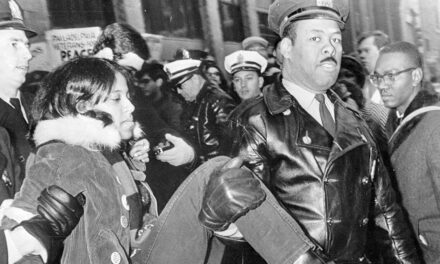We support our Publishers and Content Creators. You can view this story on their website by CLICKING HERE.
Sept. 11, 2001, is etched in our collective memory as a day of profound tragedy and heroism. It was a time when duty demanded unwavering resolve in the face of unprecedented threats.
On that day, I was a lieutenant in the Metropolitan Police Department of Washington, D.C., responsible for the security planning for all the major events in the city and supporting the Secret Service in protecting the president and vice president.
At 9:03 a.m., I was on the phone with the Secret Service when I watched in horror as the second plane struck the World Trade Center on live television. At 9:37 a.m., a tremor passed through my office as American Airlines Flight 77, crashed into the Pentagon just two miles away.
Moments later, I would be running onto the White House grounds to help implement enhanced security measures around the complex.
Over the next several years, I worked with various federal agencies to help secure our nation’s capital. I administered the oath of office to thousands of National Guard troops, swearing them in as special police officers under the Defense Support of Civil Authorities program, helping secure the White House, the U.S. Capitol, and other critical sites in Washington.
This was a textbook example of federal resources supporting local agencies to enhance security, and this type of coordination was occurring in cities across the country.
On Dec. 17, 2003, President George W. Bush signed Homeland Security Presidential Directive 8 (HSPD-8), codifying federal cooperation and support to state and local agencies to help prevent and mitigate threats to our country. That directive underscored the critical importance of federal cooperation in bolstering the security efforts of state and local authorities.
Today, we are witnessing another national disaster, as millions of unauthorized, unvetted border-crossers pour into our country.
Illegal immigration is an urgent national crisis and threat to our homeland, bringing increased violent crime into our communities and cities. Individuals with extensive criminal backgrounds, gang members, and individuals on the terrorist watchlist have been encountered crossing our porous borders.
Innumerable military fighting-age males are being encountered daily, many coming from adversarial countries. Along with this mass influx, we are also seeing significant increases in human trafficking, sex trafficking, the exploitation of minors, and the mass importation of deadly narcotics.
The FBI alone has seized enough fentanyl over the past two years to kill 270 million people.
While I am not implying that every illegal migrant poses a serious threat, some very dangerous criminal elements are taking advantage of our open borders to set up operations in the United States.
Just this year, we have seen numerous heinous crimes committed by individuals here illegally, including the brutal slaying of Georgia nursing student Laken Riley, reportedly by a Venezuela-based gang member; the killing of a Washington state trooper; and the sexual assault of a minor in Virginia.
In February, the FBI warned that members of violent Venezuelan gangs were entering the U.S. and joining forces with MS-13. We are seeing evidence of violent South American gangs organizing and developing criminal operations in our country. In March, the Los Angeles Police Department established a task force to deal with 900 residential burglaries that have occurred this year at the hands of South American gang members.
These violent gangs create a very real threat to our first responders. The courageous men and women of law enforcement are having to deal with the increase in crime, in addition to violence against the police. One has only to look at the headlines in Mexico, Brazil, Venezuela, and Haiti, among other countries, to see the threat these criminal organizations pose to law and order. As these gangs become more entrenched and organized in our towns and cities, we are likely to experience more of the same.
The spirit of unity embodied by HSPD-8 and the “one team” effort to secure our homeland after Sept. 11 does not appear to exist today. We do not see the same sense of urgency and cooperation between federal and local authorities in the mission to secure our borders. As a result, local law enforcement is being forced to address increasing threats to the safety and security of our communities.
Federal agencies impeding local law enforcement efforts to address this crisis further exacerbate an already dire situation, undermining our mission and efforts to keep our homeland safe.
The Homeland Security directives are presidential directives. The president has the ability and authority to address this serious issue. More importantly, the president has the trust and expectation of the American people and our first responders to do everything he can to keep our homeland safe.
It’s time to act before more of our citizens and first responders get hurt or killed because of failed policies and lack of cooperation.
The Daily Signal publishes a variety of perspectives. Nothing written here is to be construed as representing the views of The Heritage Foundation.

 Conservative
Conservative  Search
Search Trending
Trending Current News
Current News 





